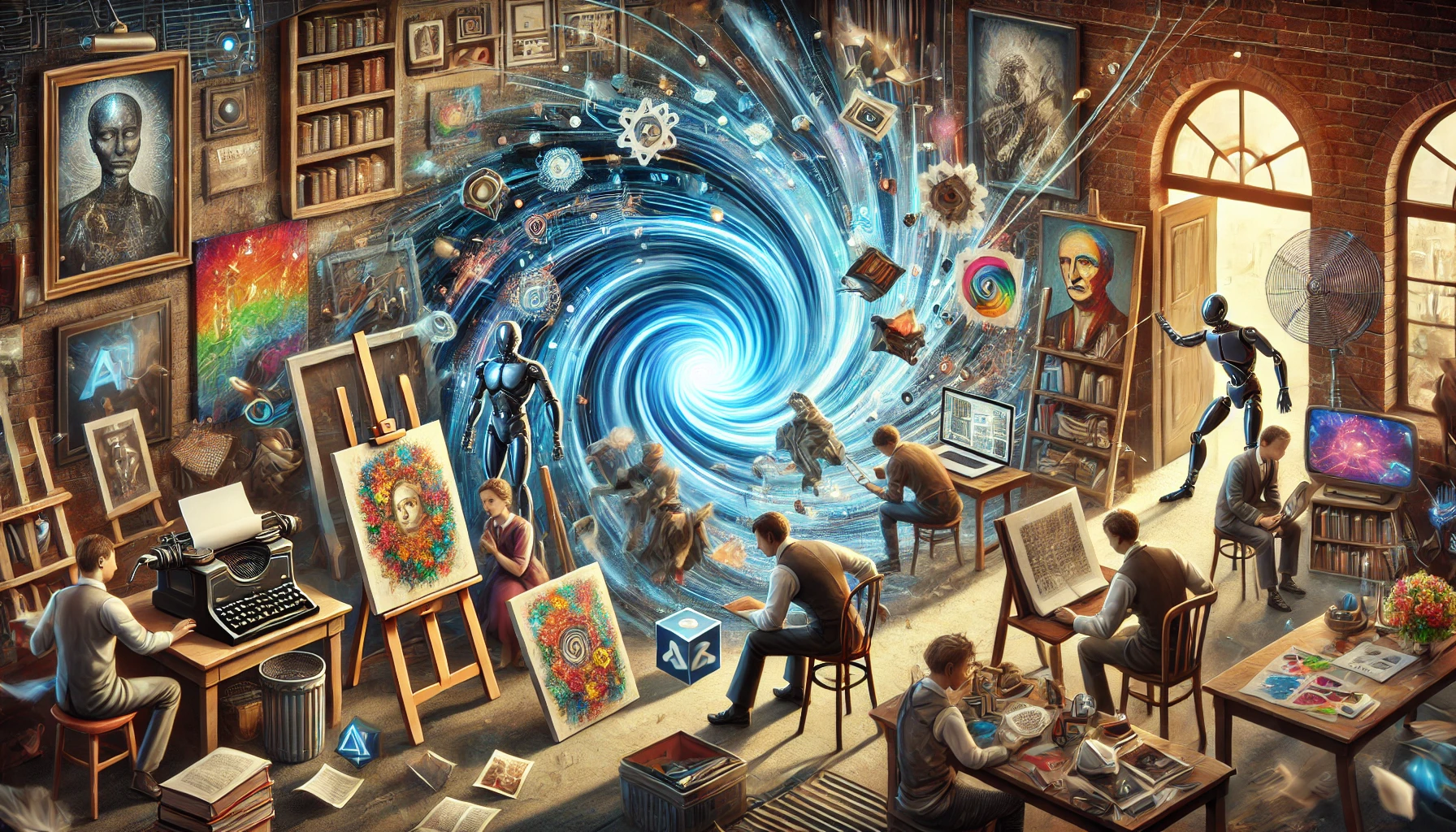Artists and writers are in a panic — they have discovered that their works are being used to train generative AI. A surge of loud discussions arises in the media when it turns out that generative AI, such as ChatGPT and others, have been using materials from artists, photographers, writers, and journalists without their permission. Now, with generative AI competing with them and taking their bread, everyone is suddenly up in arms.
Allow me to offer my perspective on this. The uproar about somehow restricting the use of materials for AI training seems laughable and evokes nothing but a sardonic smirk from me. Just as no one could stop the spread of pirated software through Fidonet, BBS, and IRC chats 30 years ago, and later through internet forums, eDonkey, a now through Torrents, and the Darknet, no one will be able to control what materials AI developers use to train their models. It is foolish to think that someone will develop “bulletproof” algorithms to modify graphical and other materials to confuse AI during model training. AI developers will devise countermeasures to bypass these, without a doubt.
It’s equally naive to think that some legislation will genuinely hinder the use of certain materials in training sets. This will not happen. Instead, developers will take additional technical and algorithmic measures to keep using available materials indirectly, and also ensure that querying their AI models does not explicitly reveal traces of the materials used for training. This is a logical and inevitable engineering step. No legislation or supposed morality has ever stopped the use of what is “poorly guarded” and available off the shelf. Arguments that “honest businesses” and public companies will strictly follow restrictive laws only apply partially. Yes, such restrictions will be imposed, but only for publicly available models. What about the non-public models that these companies develop for their “internal experiments” and which might later “leak” out in this or another way? It will eventually open up a new area of grey and even DarkAI. Much like like what happened to the software and the warez scene. Progress is unstoppable. Only a fool thinks this can be artificially regulated. Everything that can be taken will be taken. Trying to prevent this is just a waste of time. Legislation can impose only a minimal barrier but can’t reverse the inevitable. Instead of trying to resist, time should be spent understanding reality and adapting to new circumstances, where a vast number of jobs will become unnecessary, many people will lose their jobs, and only genuinely outstanding individuals will become sought-after content creators. AI will replace all others, trained on honestly or not-so-honestly used materials — no one will know, and nothing can be done about it.
Is this bad? It doesn’t matter. It is a fact. As a result, a massive number of mediocre “specialists” will have to find other occupations, and the content will only improve. The only regret is that consumers will no longer be able to distinguish between artificially created and authentic products. But this will have to be accepted, and progress will not be stopped. Those who do not find a niche in the new world will fade into obscurity. All of us in the digital technology industry — from artists to coders — are at risk of being replaced. AI is knocking on every door. But instead of useless lamentations, we need to look for new niches, develop, and come up with things that AI has not yet touched.
The advent of AI is not just a challenge for the creative industries; it is a seismic shift that will affect all sectors of the economy, faster than we think. From healthcare to finance, from education to manufacturing, AI is poised to transform the way we live and work. This transformation will bring about significant efficiencies and innovations, but it will also create disruption and displacement.
The rise of AI is an unstoppable force that will reshape our world in profound ways. Rather than resisting this change or looking for ways to artificially limit its approach, we must embrace it and prepare for the opportunities and challenges it brings. This requires a proactive approach that includes continuous learning, and a commitment to innovation.
As someone with over 30 years of experience in computing, I have witnessed many technological revolutions. Each one has brought its own set of disruptions and advancements. AI is no different. It is a powerful tool that, if used responsibly, can enhance our lives and drive progress in ways we can only begin to imagine.
At Alango (www.alango.com), we have been working on audio DSP technologies in the embedded communications field for over 20 years and have begun to feel the breath of AI, too. We are not standing aside and are introducing our own AI-based technologies, such as dereverberation, noise reduction, and many more into our line of solutions.
As an independent inventor of DSP algorithms in the field of audio watermarking and fingerprinting (www.audiowatermarking.com), I contribute to the field of authentication and proof of authorship, helping individuals and companies secure their content in the ever-increasing sea of auto-generation and fakes.
In the end, the key to thriving in an AI-driven world is to remain adaptable, forward-thinking, and resilient. By doing so, we can ensure that we are not left behind but are instead leading the charge into a new era of technological innovation and human achievement.
We strive to evolve, stay in demand, and remain unique. And if, or when, I can no longer succeed in this, I won’t cry but will open a small restaurant where I’ll serve good pizza and tasty coffee. Good pizza and tasty coffee will always hold true value.
Alex Radzishevsky
www.radzishevsky.info

